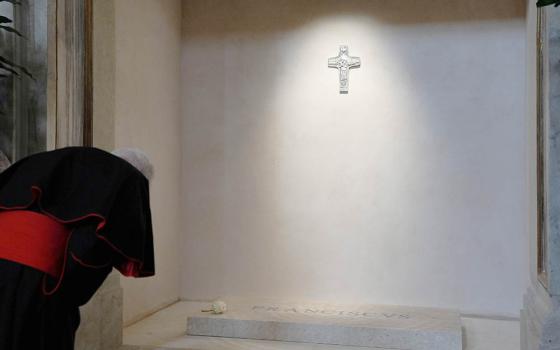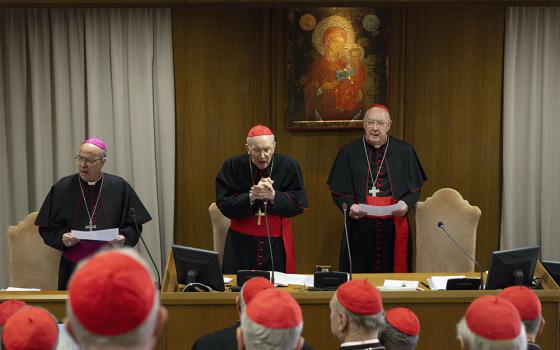Church leaders in the southern Philippines said the killings of tribal leaders and the harassment suffered by indigenous peoples in Mindanao are related to mining operations in the area.
"The [tribal people] who firmly stand against mining activities were the ones being intimidated by paramilitary forces," Fr. Bong Galela, social action director of the Diocese of Tandag, told ucanews.com.
In Surigao del Sur province, indigenous peoples, collectively known as Lumads, have been under attack by gunmen of the Magahat-Bagani paramilitary force.
Human rights groups alleged that the Philippine military trained and funded the group to go after communist rebels in the hinterlands of Mindanao.
The allegation was supported by diocesan clergy.
"We call for the disarming and arrest of the members of the Magahat-Bagani group," Galela told a Philippine Senate panel inquiry Oct. 1.
"We also demand the government to ensure that there will be no cover-up in the investigation of these gruesome murders," the priest said.
The Philippine Senate's Committee on Peace, Unification and Reconciliation launched this week an inquiry into the Sept. 1 killing of Emerito Samarca, director of the Alternative Learning Center for Agriculture and Livelihood Development in Lianga, and tribal leaders Dionel Campos and Aurelio Sinzo.
Witnesses accused members of the Magahat-Bagani force of committing the crime, but no suspect has yet been arrested.
The killings resulted in some 3,000 tribal people fleeing to the provincial capital of Tandag, where they continue to stay in makeshift shelters.
"We have to solve this problem as soon as possible," said Sen. Teofisto Guingona III, chairman of the Senate panel.
"[The tribal people] have to go home and live a normal life," he said.
Another tribal leader was reported killed Sept. 28 by armed men in Agusan del Sur province, according to the Rural Missionaries of the Philippines.
The victim was identified as Lito Abion, 44, leader of the tribal organization Tagdumahan.
A pastoral statement released by clergy of the Tandag Diocese Oct. 1 noted that the indigenous peoples of Mindanao "are now victims of those who are hungry and greedy for power and wealth."
"As priests of the Diocese of Tandag, together with our bishop, we all strongly condemn the terrorization, harassments and the killings of our Lumad brothers and sisters, as well as denounce the root cause of it all," the statement said.
The clergy called for "a careful and fair investigation" into the allegation that the Philippine military is the "origin and creator" of paramilitary groups.
The priests also urged the government to investigate an alleged military plan to "terrorize" tribal communities as part of a counterinsurgency campaign and in collusion with big mining companies.
A top official at the government's Mines and Geosciences Bureau admitted that some mining companies use military and police personnel to secure mine sites.
"But when [the mining companies] are accused of militarization, they pull [the military and police] out," said Elmer Billedo, bureau assistant director.
"Then what happens, their base camps are attacked. These reports do not reach you," Billedo said.
The official blamed indigenous peoples for conflicts in their areas.
"There are many self-proclaimed tribal leaders and politically-anointed chieftains who say that they represent the indigenous peoples," said Billedo, adding that tribal people should come up with "proper designated officials and representatives" to negotiate with mining companies.
The faith-based civil society network Philippine Misereor Partnership Inc., however, said in a statement that an investigation should look into the possible culpability of mining companies "as more people observe the seeming connection of the killings to mining activities."
Father Stephen Brongcano, director of a social action center in the Diocese of Butuan, cited a case in 2013 in South Cotabato province where a local government official and a military colonel admitted that a mining company was funding a military unit suspected of carrying out the killings of a B'laan tribal woman and her two sons.
The Philippines is the world's 20th largest gold producer. Large and small-scale mines combined produced about 18 tons of gold in 2014 at a market value of more than $700 million.


